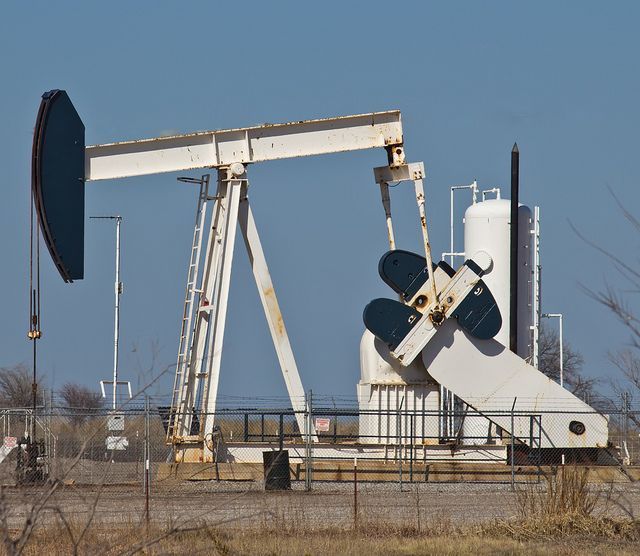
Three of Oklahoma’s Largest Oil Companies’ Plan for How the State Should Tax Them
-
Joe Wertz
Executives at Chesapeake Energy, Continental Resources and Devon Energy have proposed a plan for Oklahoma’s taxes on oil and natural gas production.
The proposal comes as legislators are debating state oil and gas taxes, which include an incentive for horizontal drilling that expires next year. The Oklahoman‘s Adam Wilmoth reports:
The newest proposal would change the gross production tax rate to 2 percent for both horizontal and vertical wells for the first four years of production. The rate would then rise to 7 percent.
About 87 percent of wells being drilled in Oklahoma are horizontal wells. In 1994, lawmakers enacted an incentive for horizontal drilling that lowers the tax rate to 1 percent from 7 percent for two years. In 2002, the incentive was extended to the first 48 month of production — the most productive period for most horizontally drilled wells.
As Oklahoma’s oilfields have boomed, so has the cost of the tax incentive. Critics, like the left-leaning Oklahoma Policy Institute, say the incentive was created when horizontal drilling was an experimental process and has evolved into a handout for what’s become standard industry practice.
The oil and gas industry, by and large, has fought hard to keep the tax rate from returning to 7 percent, Wilmoth reports:
Industry leaders have said the tax credit should be extended because it has been successful in boosting drilling throughout the state, and that higher taxes would leave less money available for drilling.
…
Industry leaders say the low tax rate is needed to make Oklahoma competitive with drilling in other states, such as North Dakota and Texas.
But at least one large, high-profile energy company — Tulsa’s Kaiser Francis Oil Company, helmed by billionaire George Kaiser — says taxes don’t play a major role in companies’ decisions to drill. In March 2014, Kaiser CFO Don Millican told StateImpact, “Severance tax rates never make a difference in that decision. They just don’t. People are drilling where the hydrocarbons are. Where the hydrocarbons are, in sufficient quantities, it makes sense to drill.”
Kaiser himself echoed the same sentiments to The Oklahoman in a separate story:
“In addition to the fact that I think it has desperate consequences to the state, which is already suffering an inability to fund state services, I am absolutely confident that the rate of gross production or ad valorem in a state within a reasonable range of 0 to 12 percent has no bearing whatsoever in the economic activity in a state,” Kaiser said.
Gov. Mary Fallin’s office seems willing to consider the industry-backed 2 percent plan, Wilmoth reports.
“The governor is inclined to support the concept and thanks the industry and Legislature for collaborating in the review process we recommended last summer,” Secretary of Finance Preston L. Doerflinger said.
The Governor’s Office has had discussions concerning the broad strokes of the oil companies’ tax plan, but has not seen a written draft or any formal language, says spokesman Michael McNutt. A spokesman for state budget director and Secretary of Finance Preston L. Doerflinger did not immediately return StateImpact’s call.

